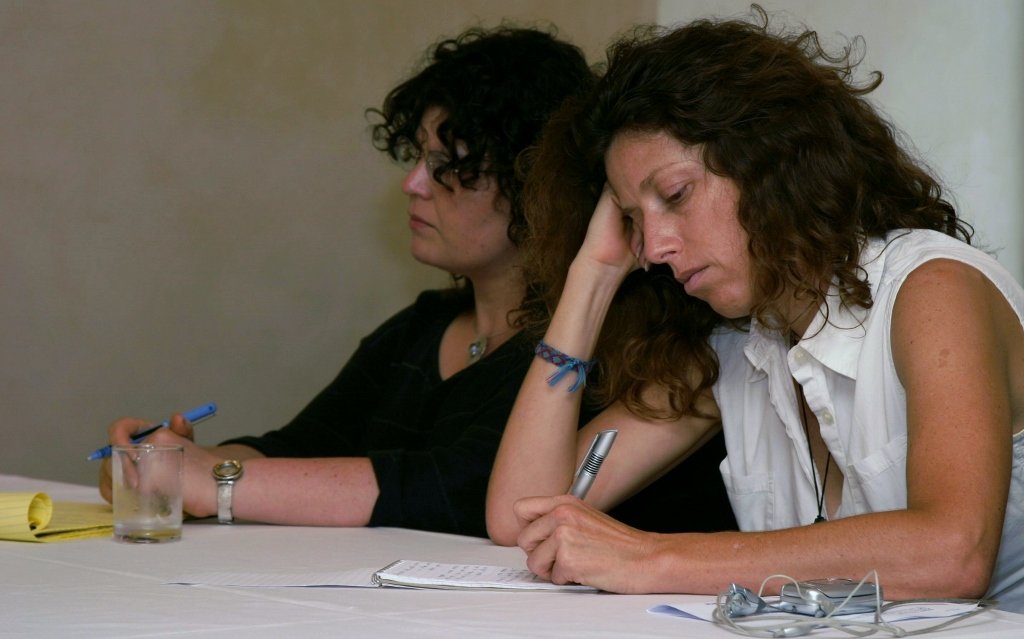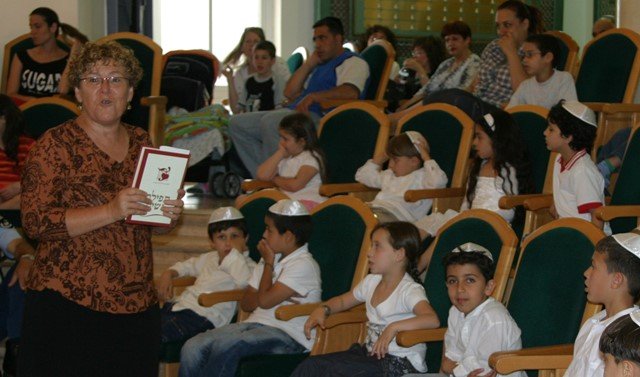Share This Story, Choose Your Platform!
“Dear friends and companions,” I might as well write: “Dear Carl, dear Paul, dear Ralf or dear Rolf” – or “dear Theophil!” – if I would like to remain in the biblical – or more precisely “Lucanian” – usage of language.[1]
“It’s not as simple as that!”, you kept telling me when I raved about reading the Bible and pointed out that the Bible is the living “Word of God”; that what is “written” applies to me; that what my Father in heaven says is all-important and irrefutable – while we are welcome to disagree and discuss all other issues. And of course you’re right: It is not that simple!
… to a journey
That is why I would like to invite you on a journey – specifically, to a series of articles that has not yet been written and is to be developed decisively in conversation with you.
My reflections on “hermeneutics” are a journey that is not just beginning. It began decades ago. Perhaps I should start, when my grandfather read to us grandchildren from the big family Bible; when my dad kept us teenagers at the dinner table to read the Bible; when I read the whole Bible in one go for the first time during my time as a volunteer in Israel; or with the all-night discussions as a student of theology at Tübingen University.
Hermeneutics always has to do with biography; with what someone has experienced; with how someone shapes his life. Conversations with Africans and Americans and getting to know their completely different perspectives were just as formative as witnessing the events here in the Middle East and realizing that Jews or Muslims live with a text, or a tradition quite differently than we do when our thinking is fundamentally shaped by the Renaissance and the Enlightenment.
In any case, my question about hermeneutics is a journey that is not yet complete. I am in the process of learning to understand. I am on my way, permanently discovering new aspects by reflecting on what has shaped me: Swabian pietism, the tradition of Lutheranism, the Darbyst-dispensationalist Brethren movement, charismatic, Mennonite, Catholic, Anglican and Orthodox sisters and brothers. And I look forward to your reactions, your “Yes, buts…” because that’s how we learn.
What is “hermeneutics”?
Perhaps I should start by explaining this foreign word, “hermeneutics”, which I have just thrown into the room as a matter of course.
The term “hermeneutics” comes from the Greek. The “ἑρμηνεία/hermeneia” or “ἑρμήνευμα/hermeneuma” is primarily the ability to speak, language, expression(s), representation or explanation. In the New Testament, the apostle Paul uses this word to describe the gift of translating or interpreting tongues.[2]
The dictionary[3] teaches me that “the hermeneus” (ὁ ἑρμηνεύς), “hermeneutes” (ἑρμηνευτής) or also “dihermeneutes” (διερμηνευτής) is “he who gives information about something”, more specifically: a “herald, interpreter, explainer, translator”, but occasionally also a “temple guardian” or “sexton”. The verb ἑρμηνεύειν/hermeneuein or διερμήνευειν/dihermeneuein means something like “to expound, explain, interpret, give information, translate, expound, proclaim, present”.
In the New Testament, generally this word root is used when a translation is explained[4], or when Yeshua interprets (διερμήνευειν/dihermeneuein) to the two so-called Emmaus disciples what was said about him in all the Scriptures, beginning with Moses and the prophets (Luke 24:27).
Hermeneutics, therefore, is the study of understanding. ἡ ἑρμηνευτική/he hermeneutike is the art of interpretation. It is about the correct presentation of what is to be communicated, answering the question: “How can I ensure that my listeners or readers understand me correctly?”
However, the question then quickly arises: “Have I myself actually understood what it’s all about?” – According to the ancient Greek philosopher Plato, ἡ ἑρμηνευτική τέχνη/he hermeneutike techne is the “art of correctly understanding a given”.[5]
If I then, as a theologian – or journalist! – use written sources or interview eyewitnesses, within the framework of hermeneutics the question must be asked: “Did the eyewitnesses and the authors of the written sources actually understand what they saw or heard or read?”
In the first two decades of our century, I worked as journalist and Middle East correspondent and therefore had to put theology on the back burner. However, I soon realized that the tools of a theologian and Bible reader are pretty similar to those of a journalist. In fact, the best description of the journalistic and Bible reader profession that I know is the so-called Luke Prologue (Luke 1:1-4):
After many have [already] had a hand in compiling a report on the events that have taken place among us, as transmitted to us by those who were eyewitnesses from the beginning and [thus] became servants of the word, it also seems [right] to me, after having followed all things meticulously from the beginning, to write everything down in order, dearest Theophilos, so that you may recognize the reliability of the words in which you have been taught.
It is about the trustworthiness and reliability of the words that shape our lives in a time when “fake news” is generally accepted. This is what unites theologians and journalists, Bible readers and media consumers. That is why we need a hermeneutic that is clear, comprehensible, and therefore helpful.
Footnotes:
[1] compare Luke 1:3; Acts 1:1.
[2] 1 Corinthians 12:10,30; 14:4,13,26,27,28.
[3] Hermann Menge, Langenscheidts Großwörterbuch Griechisch Deutsch unter Berücksichtigung der Etymologie (Berlin, München, Wien, Zürich: Langenscheidt, 25. Auflage 1984), 287.
[4] Matthew 1:23; Mark 5:41; 15:22,34; John 1:38,41,42; 9:7; Acts 4:36; 9:36; 13:8; Hebrews 7:2.
[5] Gerhard Maier, Biblische Hermeneutik (Wuppertal und Zürich: Brockhaus, 1990), 7.






















